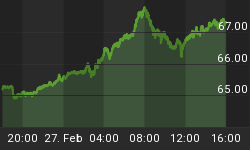In many workplaces, chat rooms such as Slack, Yammer, HipChat and Bitrix24 are the new water coolers where people connect with other employees or clients, brainstorm, or simply chat. For the banking industry though, chat rooms now serve a far more insidious purpose— a channel where wily traders gang up to conduct elaborate schemes of corporate malfeasance.
In what is quickly becoming a recurring theme in the industry, the European Commission has charged eight unnamed banks for participating in a collusive chatroom scheme aimed at rigging the eurozone bond market. The scheme spanned 2007 to 2012, a time of intense activity in the eurozone bond market after several governments within the bloc defaulted on their debts.
The commission says that the banks used online chatrooms to exchange commercially sensitive information and coordinate trading strategies in the euro-denominated bonds. This in effect means that the banks engaged in anti-competitive behavior which violates EU laws.
The EU, though, has been quick to point out that sending the statement of objection does not amount to prejudging the outcome of the investigation and also that the charges do not imply that anti-competitive conduct is general practice in the eurozone government bond sector.
Financial penalties unable to deter bad behavior
If found guilty, the eight banks could be fined up to 10 percent of their global turnover, with total fines likely to run into the billions of dollars. That could shave off at least half their annual profits not counting the possible damage on their shares.
That’s probably enough to deter most businesses, only that the alarming regularity with which this has been happening in the banking industry suggests that banks have made up their minds that the rewards outweigh any potential penalties. Related: EU Defies U.S., Sets Up New Iran Payment Channel
In December, the EU charged Credit Suisse, Deutsche Bank, Credit Agricole and another unnamed bank for participating in a similar bond cartel—again via online chatrooms. They were collectively fined several billions of dollars and lost several billions more after their shares tanked.
But few scandals highlight the scale of avarice and corporate scheming ailing the industry like the famous forex scam of a few years back.
In 2015, the U.S. Department of Justice handed down fines totaling $5.6 billion to six global banks for systematically rigging the forex market. Traders at Bank of America, UBS, Royal Bank of Scotland, JPMorgan, Citigroup and Barclays who fittingly called themselves “The Cartel” used an exclusive chatroom and coded language to manipulate the $5-trillion forex market in an effort to swell their profits. A chatroom transcript by the New York Department of Financial Services (DFS) revealed that one Barclays trader bragged to his colleagues that “… if you ain’t cheating, you ain't trying”.
Quite tellingly, no CEO or senior figure at the bank resigned even after the scandal was unearthed suggesting that rigging the financial markets was part of their culture. For UBS, the forex scandal marked the third major financial rigging scandal it had confessed to in just five years.

(Click to enlarge)
Source: The Financial Times
According to Loretta Lynch, the US attorney-general, the fines meted out were commensurate with the pervasive harm done and were meant to deter competitors from chasing after profits with scant regard for the law or fair play.
Related: Investors Anxious Ahead Of Big Week
But four years down the line, this has clearly not worked as intended.
For these businesses, being caught with a hand in the cookie jar is hardly reason enough to make them blush. After all, what’s a little shame when inflating rates by a few basis points means billions of dollars more in profits. Life as a felon only carries symbolic shame and little practical problems once you are able to secure exemptions, waivers and settlements while a blowout quarter easily persuades investors to forgive your little indiscretions.
The senior bankers have obviously decided that it’s in their best financial interests to continue violating the law. Apparently, the whiff of big money provides extraordinary temptation that’s far bigger than any social disapprobation that would affect a change in behavior. So we can expect more of the same going forward.
By Alex Kimani for Safehaven.com
More Top Reads From Safehaven.com:
















